Lolita fled abuse to safety, then Saudis kidnapped her
A young Saudi woman was taken from her Melbourne flat to the city’s airport by a gang of men and was never seen again. Her lawyer and her friends do not believe she left willingly.
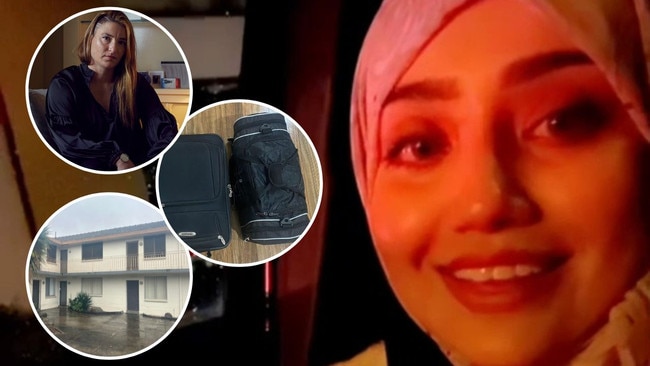
The young Saudi woman was screaming into the phone, begging her friend to help. “They want to force me. They want to take me to the airport. They told me to pack my bags. Please help! I don’t want to go back. I don’t want to go back.”
A group of Arab men had turned up at her unit in the northeast Melbourne suburb of Preston in a black Mercedes van and were ordering her to pack her bags and get on a flight to Saudi Arabia.
She had fled to Australia and was in the process of seeking asylum, having escaped a life of violence and sexual servitude in Saudi Arabia. She was forced to marry at the age of 11 and had her first child at around 13. Her name is Lolita, and even her name would be taken from her.
Lolita’s friend Ali* jumped in his car and sped to her flat, a short drive from his home. There he saw the black Mercedes van parked outside Lolita’s flat.
Three or four Saudi men were blocking Lolita from leaving. One approached him and threatened him in Arabic.
They had information about him and his family he believes could only have come from the Saudi embassy in Canberra.
He’s not heard from her since. He has had contact with one of Lolita’s cousins in Saudi Arabia, who told Ali that his side of the family had not heard from her but believed she was locked up in a Saudi jail. Ali says there is no way Lolita would have willingly returned to Saudi Arabia.
The federal government recently announced a raft of measures to fight the growing threat of foreign interference, with Clare O’Neil, who was home affairs minister at the time, describing them as a “world-leading package of reforms”. “Foreign interference is a complex problem and we are constantly working with our agencies to make sure that we are covering all possible avenues of attack,” O’Neil said.
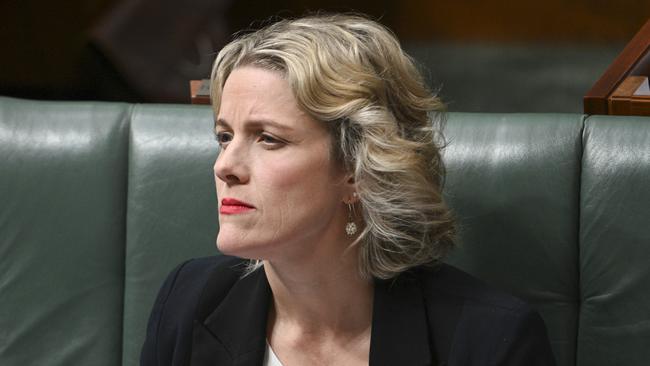
While she was happy to spruik her new policies, she didn’t want to speak about the plight of Lolita. “As is longstanding practice, we don’t comment on individual cases,” a spokesman for the minister said in response to a long list of questions submitted by The Australian on Lolita’s apparent kidnapping and forced removal.
The office of Foreign Minister Penny Wong would not say whether there had been diplomatic contact with the Saudis to find out where Lolita was and whether she was safe. The office of Attorney-General Mark Dreyfus, who oversees the federal police, did not respond to emails about the apparent kidnapping of a foreigner, and threats to others, in Melbourne.
The royal embassy of Saudi Arabia in Canberra was also mute, declining to respond to questions about what may have happened to one of its citizens.
The mysteries
What we do know is that Lolita boarded a plane at Melbourne airport on May 27 last year, bound for Kuala Lumpur, en route to Saudi Arabia. This is four days after Ali saw her at the unit in Preston.
We don’t know who escorted her on to the plane as CCTV footage from the airport, according to the AFP, has been destroyed.
Just who purchased the ticket, and who sat next to her on the flight, is a mystery at this stage.
Her friends here, and her Australian lawyer, Alison Battisson, believe she is languishing in a Saudi prison, where she’ll remain until her processing or sentence is complete. It will then require her official “male guardian” – the man she claims abused her, her husband – to sign her out.
Without his signature, she’ll remain imprisoned.
The case of Lolita joins a list of high-profile cases involving Saudi women fleeing oppression, or dying in suspicious circumstances. In 2022, Saudi sisters Asra and Amaal Alsehli were found dead in separate bedrooms in a flat in Sydney’s Bankstown.
A coronial inquest into their deaths is yet to be held but it is known the sisters were terrified and believed that they were being followed.

In 2018, Rahaf Mohammed was en route to Australia, fleeing years of physical and emotional abuse, when she was detained at the behest of the Saudis in Bangkok. Media coverage and a social media campaign led to her being granted asylum in Canada.
Dina Ali Lasloom was attempting to make it to Australia in 2017 when she was stopped at Manila airport at the request of Saudi officials. Her uncles arrived to carry her kicking and screaming onto a plane bound for Riyadh. She has not been heard of since.
The Australian has been told of other cases of women being kidnapped in Australia and being forced back to Saudi, but no one in the Australian government would answer questions on this.
Kylie Moore-Gilbert says the Australian government should be doing everything possible to put pressure on the Saudi government to find out where Lolita is and ensure that she is safe.
She knows what it’s like to languish in a Middle-Eastern jail, having been imprisoned for 804 days on trumped-up charges of espionage after being arrested in 2018 in Tehran following an academic conference.
The dangers
When The Australian began making inquiries about Lolita’s disappearance, an Australian official said: “We think it’s worth considering what publication will mean for her personal safety.”
The clear implication was that if we published the story, it could imperil Lolita.
“That same card that was pulled on my parents,” Moore-Gilbert says angrily. “They were told that it could endanger me if they should speak out.”
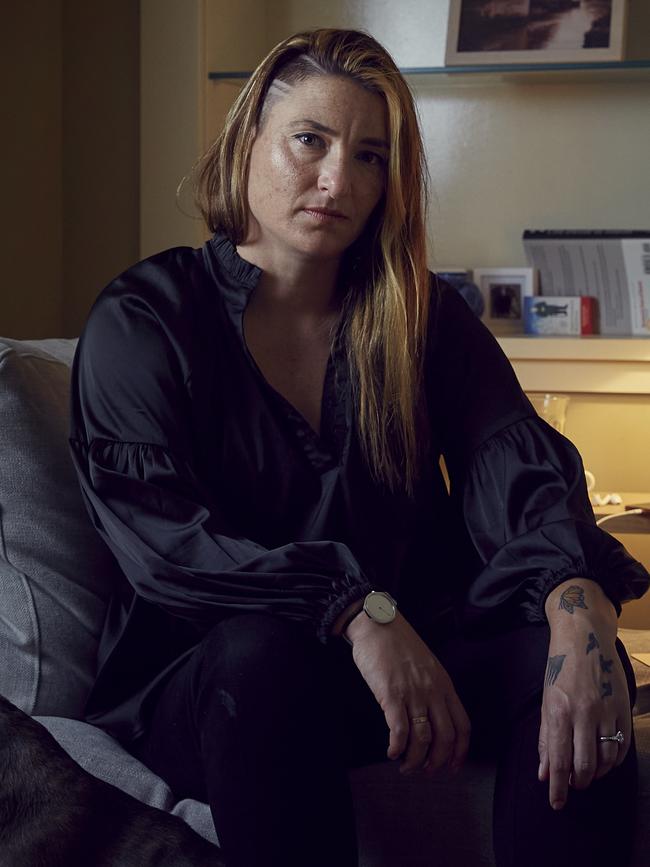
And, she says, there is no evidence to back this claim. It is often only when matters are aired in the media that pressure is put on foreign regimes to act, and for the Australian government to apply pressure. Moore-Gilbert believes the government’s prerogative to keep things quiet is “self-serving” and whoever is “responsible should be held accountable for their f..k up” in allowing a woman who was seeking asylum in Australia to leave the country without any checks on her safety.
She agrees with Lolita’s lawyer, Battisson, who is advocating for all women who are in the process of applying for asylum to be placed on a watch list so they can be questioned by Customs officials to ensure they are leaving the country willingly.
Battisson is also advocating for the government to issue Lolita with a permanent residency visa, which would entitle her to consular assistance.
No time to lose
Moore-Gilbert says this should be done urgently. “Saudi isn’t the only country doing transnational repression on our territory and we need to crack down much more strongly than we have,” she says.
“A lot of it is being directed from embassies. Was the Saudi embassy in Canberra involved?”
“This needs to be properly investigated,” she says. “And from what I know of the case, I don’t think it has been.”
Moore-Gilbert says it is also important for authorities to make the results of any investigations public “to disincentivise” others and deter it from happening again.
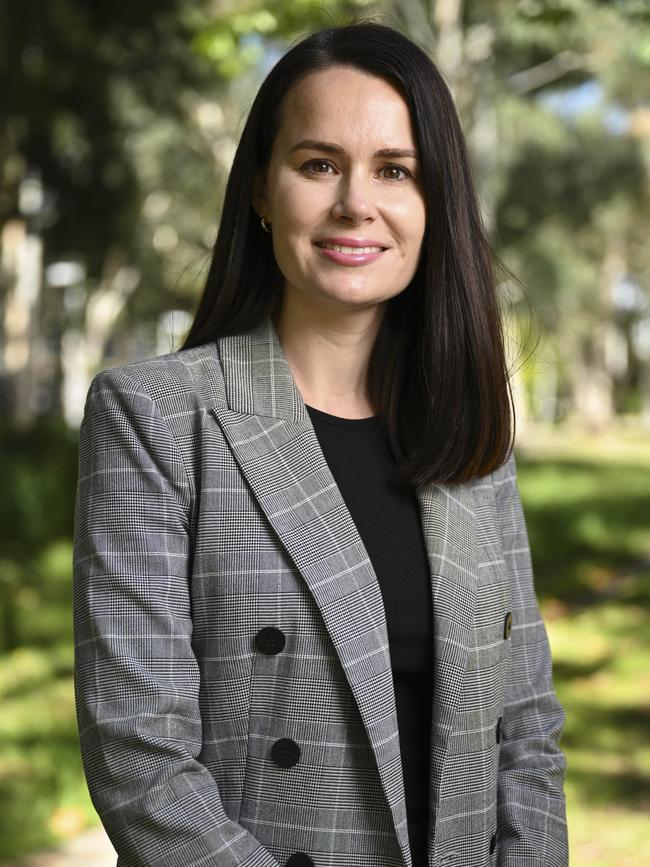
Ali is Sudanese but was born and raised in Saudi Arabia, where his parents had moved for work. His family is one of tens of thousands of undocumented families living in the kingdom precariously and vulnerable to exploitation.
Ali has his own story of trauma and abuse and a decade ago he fled to Australia and was granted asylum. He now earns a living driving trucks and playing professional football for a club in Melbourne. Since he arrived in Australia, he’s had only one interaction with the Saudi embassy: he needed an Australian driver’s licence and to avoid the tedium of going through his L-plates and P-plates, he needed documentation to confirm he had previously held a Saudi drivers licence. In 2017, the embassy in Canberra emailed him the documents he required. He showed me the documents sent by the embassy on his phone.
A couple of years ago, a Saudi woman called him and said one of her friends was in Melbourne and was having a hard time. She asked Ali if he could help her out.
He met Lolita “after the Covid”. They became close friends, would talk every few days and meet up regularly.
Over time, he got to hear the story of her struggles and abuse. Her father is Saudi, her mother is from Turkiye. Her father has two wives and she is the only child of his second wife. She has many half siblings, who are much older.
Ali says one of her older half sisters was killed in a car accident. Lolita was forced to take on her identity, which meant she could be married off much earlier than is legally possible, even in Saudi.
Lolita assumed the name of her dead half sister, Hanan Safeeraldeen, the name on her passport. She also assumed her date of birth, which meant she could be married, against her will, at 11. Her passport says she is 41.
Her lawyer believes she is 32 and Ali says this is also what she told him. She has three children. Her eldest child, a boy, is now 19.
Lolita told Ali she wanted to seek asylum, and so he put her in contact with the Sydney lawyer who helped him through the process, Battisson.
She is the woman you want in your corner. She’s a former boxer turned human rights lawyer, who’s a scrapper for her clients. During the fall of Kabul, she worked day and night to get vulnerable people – including the Afghan women’s football team – away from the clutches of the Taliban and on to humanitarian flights.
After hearing Lolita’s story, and interviewing her for many hours, Battisson took on her case pro bono. She wanted to check every aspect of her story before taking on many weeks of free work for Lolita.
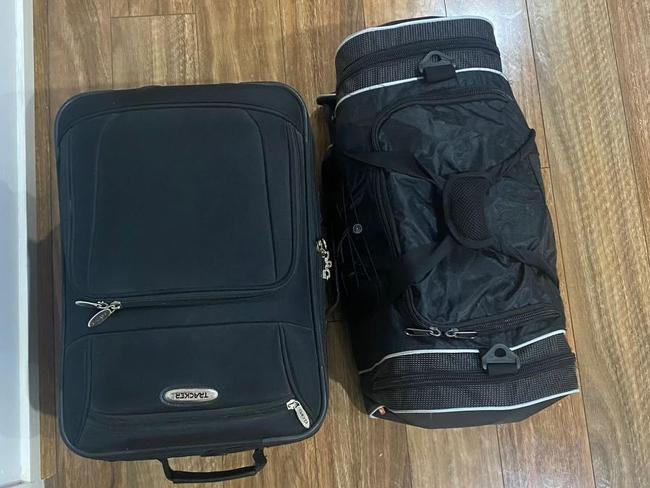
“She preferred to be called Lolita, rather than the name she was forced to assume,” says Battisson.
In June 2022, a protection visa was lodged with the Department of Home Affairs for Lolita. In December, she received news the department had rejected the claim.
Lolita had a very strong case and so she applied to the Administrative Appeals Tribunal for a review. Her claim was that she is a Saudi woman under the guardianship system of Saudi Arabia and had suffered all sorts of violence, sexual and physical.
Information void
In August last year, Battisson got an email from the AAT saying it no longer had jurisdiction to review Lolita’s case because she was no longer in Australia. Battisson had no idea she’d left the country.
She desperately tried to contact Lolita through WhatsApp and email – the WhatsApp messages were read but not answered.
Battisson attended a police station in Sydney to report the disappearance of Lolita, but couldn’t get past the front desk.
She tried to contact Ali in Melbourne, but he didn’t reply. He was frightened and fearful for family back in Saudi.
On June 3, Battisson managed to get Lolita’s movement records, which showed she had left the country on May 27 last year bound for Kuala Lumpur.
The next day she contacted the AFP’s human trafficking unit to report Lolita’s disappearance.
Two days later, officers from the AFP phoned her.
Battisson says she was told in that call that the AFP wouldn’t be opening an investigation because Lolita was no longer in its jurisdiction. She says she took notes of the conversation, which she still has.
The AFP dispute this and a source says Battisson was told that while it had limited scope, the AFP had alerted its officers in Dubai to make inquiries with contacts in Saudi. “We are trying to do stuff but it can be very, very difficult over there to get information,” this person said.
Battisson tells me that she is extremely concerned for Lolita’s safety and that the government must issue her a visa to give her consular assistance and assist in her return to Australia.
“This is gender apartheid and it must be condemned by the Australian government,” she says.
Men at the door
As soon as he got the distressed call from Lolita, on the night of May 23 last year, Ali jumped into his vehicle and drove to her Preston unit. He parked his vehicle and as he walked toward the corner unit in the concreted courtyard, he saw three or four men standing at Lolita’s front door. One of the men approached him and spoke to him in a Saudi accent. “The black Mercedes was parked over there,” Ali said when he took The Australian to the unit block. “I saw her. She came out of the front door and she went back into the house.”
Other men were in front of her, preventing her from leaving.
“The man said to me, ‘This is none of your business, just keep out of it’,” Ali said. “He said, ‘We know who you are, just be quiet.”
The man told Ali they knew he had an undocumented sister living in Saudi Arabia and if he caused any trouble, there would be consequences for her.
He told Ali: “We know all about you, we helped you get your licence.”

Ali says the only way they could know this information was through the embassy in Canberra.
Both Battisson and Ali say that there is no way Lolita would have left the country willingly.
After a time, Ali left. He picked up a burly friend and drove to Melbourne airport, where they waited at the Customs gate, hoping to see Lolita.
His plan was to cause a fuss and have officials intervene. They waited and waited until the last planes had left. Lolita was nowhere to be seen.
He checked his Snapchat link with Lolita, which tracks her location in real time. It had been deactivated. He and his friend drove back to the flat in Spring St but there was no one there. The black Mercedes van was gone.
Official records show Lolita had once again been forced to take on the identity of her dead half sister: Hanan Safeeraldeen left Australia four days later.
Ali says he has tried to contact her numerous times since. He can see that the messages he sends are being read, but there’s no reply.
He has also contacted a cousin of Lolita in Saudi, who told Ali that no one from that side of the family has seen her but they believed she was in a prison or a “women’s shelter”, which in Saudi is the equivalent of a prison.
Ali has not yet been interviewed by the AFP, or any Australian officials. He says he will tell them everything he knows to try to help them find his missing friend. An AFP spokeswoman issued a statement to The Australian “regarding the alleged Saudi coerced repatriation effort of Hanan Safeeraldeen” which said the AFP was made aware of the allegations in June 2024 and it immediately began making inquiries here and abroad and that “no further comment will be made”.
* Ali requested we not use his real name to give him a degree of safety.

